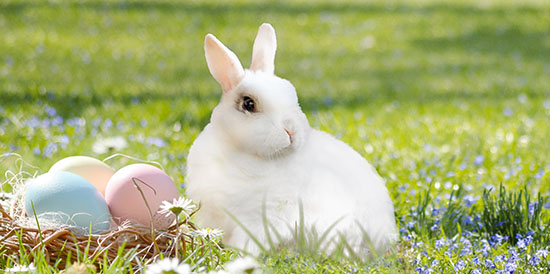Is the Easter Bunny real: tips for answering an age-old question
Media release
As the magic of the Easter Bunny prepares to hop into our homes this weekend, a Deakin University expert has tips for parents when it comes to answering the age-old ‘is it real’ question.
Dr Elizabeth Westrupp, a child development and parenting expert in Deakin’s School of Psychology, says there are strategies to handle the truth of the Easter Bunny – or Santa and the Tooth Fairy – without things ending in tears.
"Many families enjoy Easter egg hunts and stories about the Easter Bunny as a fun and magical part of their Easter traditions," Dr Westrupp said.
"It’s a personal choice for families but increasing numbers of parents are wondering if they need to tell ‘white lies’ to their children about the Easter Bunny.
"Some parents prefer to be honest with their child from an early age, and it’s certainly possible to create some Easter magic while being truthful about where the eggs came from.
"In other families, who talk about the Easter Bunny as real, parents often worry about how to keep the secret for younger children when older children in the family find out that it’s not real."
Deciding when and how to reveal the truth to children about the Easter Bunny can be difficult to navigate but it is possible without ruining the magic and ritual of the day.
"A good rule of thumb is if a child is asking the question, they're ready to hear the answer," she said.
"A helpful approach is for parents to listen, answer in a straight-forward way, and be guided by their child.
"When children learn that their parents will always answer their questions as best they can and listen to their feelings; this will strengthen their bond by building trust."
If parents want their children to believe in the Easter Bunny, Dr Westrupp said they can 'recruit' older children in on the secret.
"Older kids are more likely to support the secret if they feel important and part of something special," she said.
"It's possible to turn the occasion of them finding out the truth into a coming-of-age tradition, where they learn Easter traditions are about family togetherness and celebration."
Share this story

